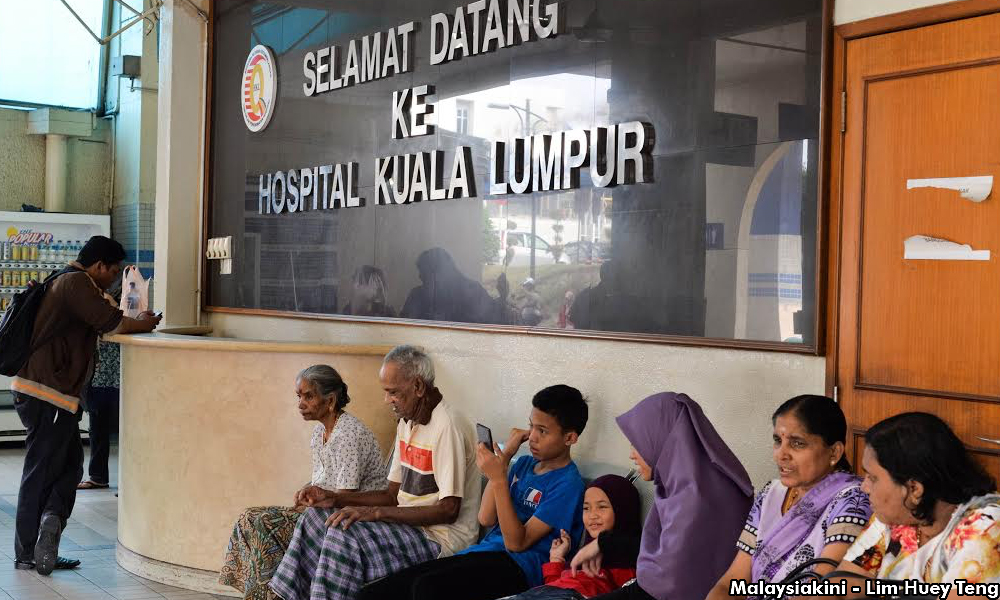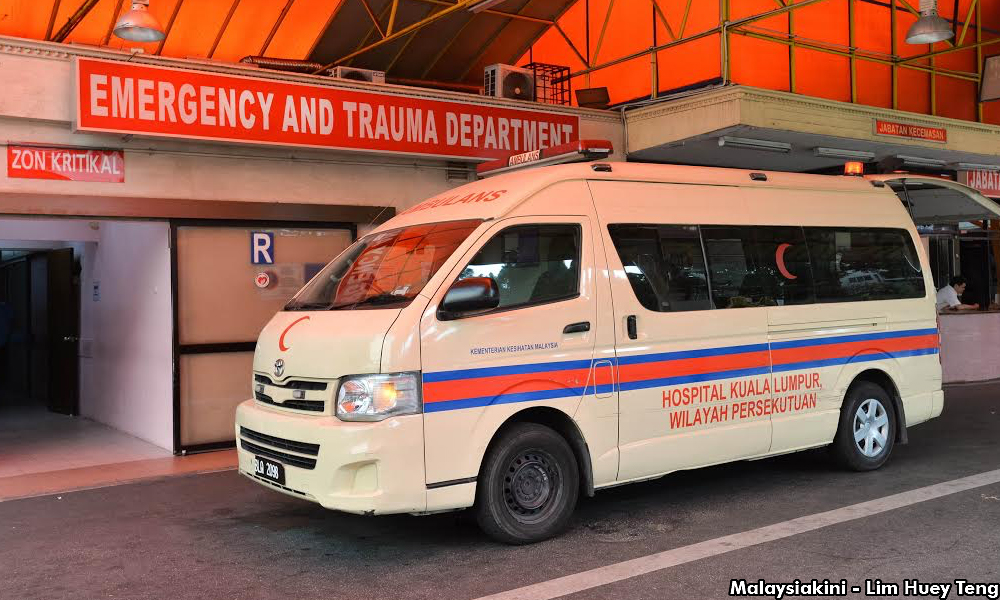Closing ranks and cover-ups in clinical negligence

When discussing clinical negligence, one doctor said: "People in countries like Malaysia have placed doctors on the pedestal, in most cases undeservedly. Rather foolishly in many instances, the doctor's words are often taken as God's words."
A lawyer friend said, "...and people thought lawyers were bad."
However, you will probably agree with Chekhov when he said, "Doctors are the same as lawyers; the only difference is that lawyers merely rob you, whereas doctors rob you and kill you, too"
When I republished an article from Asia Sentinel, which was written by Murray Hunter, on Nov 19, 2019, entitled 'Medical Malpractice Nightmare in Malaysia', several people contacted me about their personal experiences.
After listening to their stories, it is apparent that some doctors have ignored the Hippocratic Oath, and have instead, subscribed to the Hypocritical Oath. They appear to be devoid of principle and have ditched the high standards and values expected of them.
In the compensation culture of America, ambulance-chasing lawyers are those who trawl hospital morgues to make money out of a family's grief. More money is paid to the lawyers in legal fees, than is received by the families, or the victim, in a settlement.
In Malaysia, few medical negligence cases ever make it to court. When things go wrong after mistakes in surgery or treatment, what normally happens?
Despite their suspicions, some people will say, "It is takdir (fated). It is God's will". These people will not do anything.

Many people will be clueless and probably feel that they can never win against the combined force of doctors and their lawyers. They give up, even before they have begun.
Those who seek the truth, to explain why their loved ones had deteriorated, or died, feel as though they have driven into a brick wall.
They will have found a combination of these:
a) The doctor and his colleagues will close ranks;
b) The hospital will deny access to medical records, or refuse to divulge the names of key personnel;
c) Medical staff who are sympathetic to the family's suffering are given gag orders;
d) In a few cases, it is alleged that police investigating officers and post-mortem doctors have been bribed to cover-up wrongdoing;
e) Grieving families who tried to solicit the help of the Malaysian Medical Council (MMC) are stonewalled;
f) Victims felt intimidated when told that royalty owns the corporations, which in turn own the hospitals;
g) Many victims abandoned their quest after a few years because they ran out of money for a legal challenge. With cases being put "under review" for several years, many of them spiralled into depression;
h) Records from the hospital staff were difficult to access; and
i) Despite compiling the facts to initiate an investigation, and after contacting the police, the Ministry of Health (MOH), and some MPs, none, if any, of the victim's families have managed to get any resolution.
In Hunter's article, 35-year-old businessman, Nur Muhammad Tajrid Zahalan, first complained of back pain and other minor symptoms in 2015. He was told that surgery would cure his pain, but the botched operation, which he subsequently found was unnecessary, left him a quadriplegic, with permanent nerve damage and life-changing disabilities. His case is still under review.

Three years ago, Robert's father-in-law, Mark, had appendicitis. He went to a hospital in Kepong and subsequently died. His family was allegedly told that he would not have survived because he smoked a packet of cigarettes a day. Advised to cremate the body, Robert refused and sent the body for post-mortem. The pathologist found that Mark's colon had been cut.
After confronting the hospital, Mark's bill was reduced from RM170,000 to RM120,000. Medical documents which Robert sent to the MOH, and the MMC, were not addressed. Robert alleges, "My savings have been drained. Their panel of 10 lawyers engage in delaying tactics, and put up separate chronology events. They bully us to respond immediately, but delay our requests for the medical reports".
When Anthony Choo was assaulted with a sharp object, two years ago, he was taken to the Sarawak General Hospital (SGH) for treatment and it was alleged that an Assistant Medical Officer (AMO) stitched his open wound as Anthony sat in a wheelchair. Unable to stand on his injured leg when instructed, his leg was X-rayed but no fractures were found. He was allegedly given antibiotics and painkillers, and then discharged.
Intense pain forced him to make frequent trips to the polyclinics, and he was finally referred to the Orthopaedic Department of the SGH. He alleges that his questions about the competence of the AMO were unanswered, and access to his records, including his Magnetic Resonance Imaging (MRI) scans, were denied.
At a private hospital, an MRI showed that the initial treatment had exacerbated his condition and caused further pain, imbalance and affected other parts of his body. He alleges that the authorities, including the MoH, did not address his complaints.
All the doctors I spoke to, on condition of anonymity, agreed with the allegations made against the MMC.
One doctor said, "It's true. The MMC needs to be overhauled. It has too much conflict of interest. The scope of its remit must be spelt out clearly."

A second doctor agreed and alleges that the medical university where he once worked is mostly owned by Khazanah, and is a corrupt institution.
"There are issues of conduct. Key people have issues of integrity but they escape censure. The medical fraternity protects its kind and they turn a blind eye. The people there are only interested in keeping their positions," this doctor said.
Another doctor's allegation was: "Dissent is not tolerated. The MMC is dominated by one particular group and private hospitals are beholden to the medical indemnity insurers, senior specialists, etc."
One doctor alleged, "One MMC president created a comfortable position for himself, where no one could question him."
The prime minister of Malaysia is a doctor, as is his deputy. They occupy ideal positions to improve healthcare in Malaysia and help victims of medical malpractice seek better resolution.
So, does the MOH or MMC compile the statistics on medical negligence? How many cases of medical negligence have been successfully contested? What were the payouts? For each one that is contested, how many are kept secret?
Perhaps, the following could be considered.
i. Strictly enforce a whistleblowers law;
ii. Doctors or medical staff who raise concerns, or who have information about negligence, should not be gagged, sacked or be subject to a witch hunt;
iii. It should be made illegal for any doctor to be involved in a cover-up. He should be struck off if found to have been complicit in one;
iv. There should be a timescale for the resolution of a complaint, and at the end of the investigation, the complainant should receive a written account of the investigation into the complaint. An apology should be given (if necessary) and any compensation offered; and
v. Overhaul the MMC and get rid of presidents who want the glamour, the prestige and the perks, but none of the accountability.
AUTHOR’S NOTE: Some names have been changed or omitted altogether, to protect the innocent.
✍ Credit given to the original owner of this post : ☕ Malaysians Must Know the TRUTH
🌐 Hit This Link To Find Out More On Their Articles...🏄🏻♀️ Enjoy Surfing!



















Post a Comment